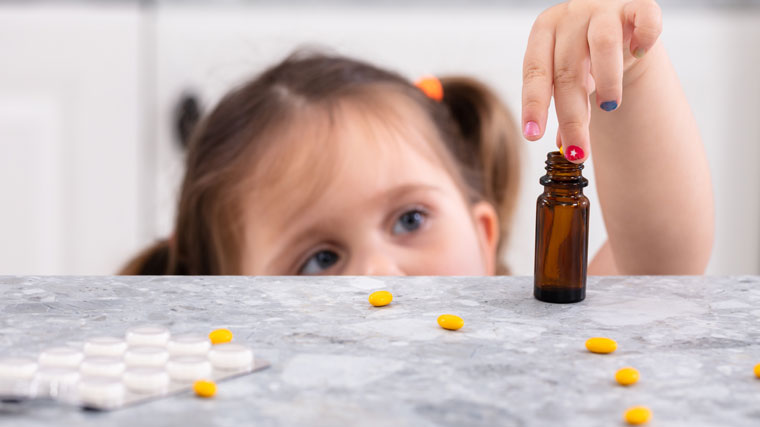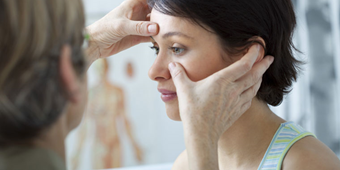How To Make Your Home Poison Safe

Answer a few questions and we'll provide you with a list of primary care providers that best fit your needs.
More than 90 percent of poisonings happen at home, and more than half of calls to poison centers involve children younger than 6.
The big culprits are medications, cleaning supplies, antifreeze, paint thinners, gasoline, pesticides, and alcohol.
You can keep your children safe by following these recommendations:
Bathroom
- Put medicines in containers with safety caps.
- Store all medicines in a locked cabinet.
- Keep toothpaste, soap, shampoo, and other everyday items in a different place from dangerous products.
- Take your medicine out of children's sight so they don’t watch and try to copy you.
- Do not call medicine "candy" because that can be confusing to children.
- Check the label each time before giving someone medicine to make sure you don’t give the wrong amount by accident, especially in the middle of the night.
- Dispose of extra or expired medicines. Find a drug collection program in your area. Do not flush medicines down the toilet or pour them down the drain because they can contaminate the water supply.
Garage/Basement
- Put paint, paint thinners, pesticides, fertilizers, and other items like these in a locked cabinet so children can’t get into them.
- Check coal, kerosene, and wood appliances to make sure they work right.
Kitchen
- Lock cabinets that contain medicines, cleaners, furniture polish, lye, dishwashing soap, and other dangerous products.
- Use a safety lock/latch when you keep any of these poisonous items under your sink.
Whole house
- Have carbon monoxide detectors and smoke alarms throughout your house and check them frequently to make sure they work properly. Your local fire department can recommend how many and where to put these in your home.
By taking these precautions with potentially poisonous medications, cleaners and other substances, you will be doing your best to keep your family safe from harm.
If a Child Swallows Something Poisonous…
Don’t panic. But do act quickly:
- Call 911 immediately, if the child is unresponsive, choking, turning blue, or passed out.
- Call Poison Control, 1-800-222-1222, if the child is still responsive, and you believe he has swallowed something poisonous.
Answer a few questions and we'll provide you with a list of primary care providers that best fit your needs.




